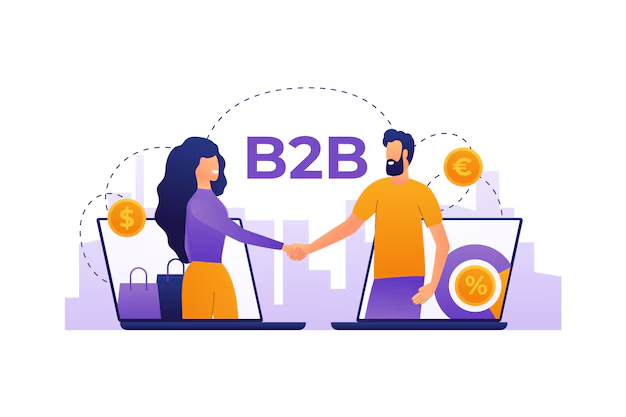Power of AI in Business
Unleash the power of AI in business processes. Learn how to use AI to automate processes reduce costs and create personal customer experiences, for long-term growth. The Game-Changing Impact of AI on Business Operations Introduction: Artificial Intelligence has grown to become a buzzword in the corporate world. What does it mean for your Company? Incorporating AI into the business strategy will be a game-changer with technology changing at breakneck speed. This article is an approach toward showing how your business can benefit immensely by using AI to help fast-track different areas, hence giving you an edge over the competition Understanding AI: Artificial intelligence is replicating human intelligence into machines that are programmed to think and learn. AI technologies include Machine Learning, Natural Language Processing, Computer Vision, and Robotics. Use of AI to Improve Your Business: AI is an important ingredient in staying competitive or relevant for any business today, especially in an expanding, digitally equipped market. There are so many ways that AI can benefit your business: It brings efficiency, and productivity, and encourages growth. Here are some of the ways you could leverage AI for the betterment of your business: 1. Customer Service AutomationAI-infused chatbots and virtual assistants can address the queries of customers non-stop with instant responses and personalized interactions. This not only enhances customer satisfaction but also lightens the workload of the human agent so he or she can work on more complex issues.2. Data Analysis and InsightsAI algorithms can churn through huge reams of data in a very short time with high accuracy, spotting patterns and trends that human analysis might miss. This ability enables data-driven decisions, smoothest operations, and more importantly, finds new avenues of growth.3. Personalization in MarketingThe AI can go through the analysis of customer’s behavior and preferences to set highly targeted marketing campaigns. Such tailoring of content and offers helps to increase customer engagement, conversion rates, and customer loyalty.4. Supply Chain OptimizationAI in supply chain management can help in demand prediction, inventory-level optimization, and potential disruption identification. The results will be minimized costs, increased efficiency, and a more responsive supply chain.5. Predictive MaintenanceFor businesses that rely on machinery and equipment, AI can anticipate when maintenance might be required, thus minimizing downtime and averting costly breakdowns. This proactive approach to ensuring smooth operations will help in the extension of the life of those assets. 6. Improved CybersecurityAI, therefore, can enhance cybersecurity by detecting any anomalies and possible threats in real time. Machine learning algorithms will then recognize unusual patterns and act excellently against cyber-attacks to protect sensitive business data.7. Hire FasterAI can automate and fast-track the hiring process by screening resumes, scheduling interviews, and examining candidate suitability for the roles assigned to them to reduce bias, speed up hiring, and ensure the best talent for the organization.8. Product and Service InnovationAI can drive innovation by analyzing market trends, customer feedback, and the products of competitors. Such insights will be very helpful for a business in creating new products and services that are attuned to the changing needs of customers and thus keep it ahead of competitors.9. Financial ManagementAI can power tools that help in budgeting, forecasting, and financial analysis. AI helps businesses make informed financial decisions and maintain financial health by giving accurate predictions and pinpointing financial risks.10. More Tailored Customer ExperienceAI personalizes the experience of the customers through product suggestions, tailoring content, and the ability to predict what they may want. The more engaging and satisfying, the better retention and loyalty. Benefits of AI in Business: Integrating AI into your business operations has several benefits, which include the following:Improved Efficiency and Productivity: AI can automate repetitive tasks to free up your team to focus on more strategic initiatives.More Personalized Customer Experience: AI-driven solutions can provide personalized experiences to customers, improving their satisfaction and loyalty.Data-Driven Decision Making: AI can analyze a huge amount of data fast enough to derive insights that could give the impetus for better decisions in business.Cost Reduction: Automation and process improvement can result in substantial costs related to many business functions. Conclusion: Artificial intelligence integrated into business operations holds immense potential for efficiency, better decision-making, and innovation. A business that incorporates AI technologies into its operations could very well be better positioned to stay competitive in today’s fast-moving market toward sustainable growth. Embrace AI to open up new avenues and take your business to the next level. FAQs: What role does AI play in small businesses? Artificial intelligence can help small businesses acquire customer insights, automate tasks, and make better decisions even when on a shoestring budget. How does AI improve customer service? AI improves customer service by using chatbots that will respond immediately to your needs, and offer you custom recommendations through sentiment analysis to understand customers much better. What are the initial steps to implement AI in a business? First, identify areas of value ads created by AI; next, invest in the right tools and platforms, followed by making sure that you are technically equipped to implement and run AI solutions. What are some affordable AI tools for startups? Yes, most AI tools will scale to some sort of affordable solution for a startup. Cloud-based AI services from providers like Google, Microsoft, and Amazon are also available for use. How can a business ensure data privacy using AI? Effective protection of data privacy can be achieved for businesses by deploying relevant security, compliance with personal data protection laws, and transparency regarding how they will use the collected data.


